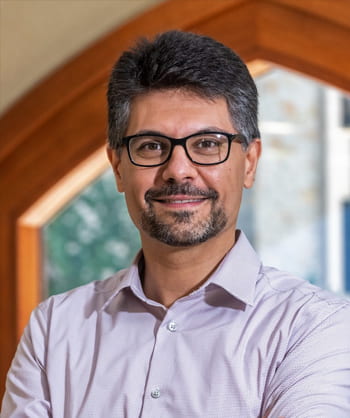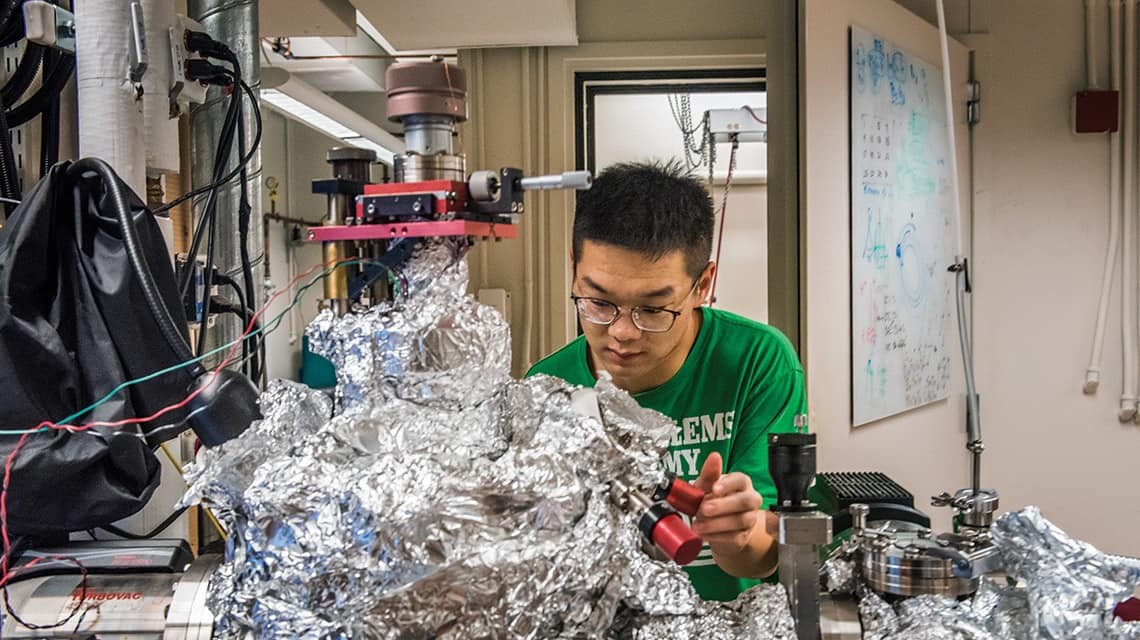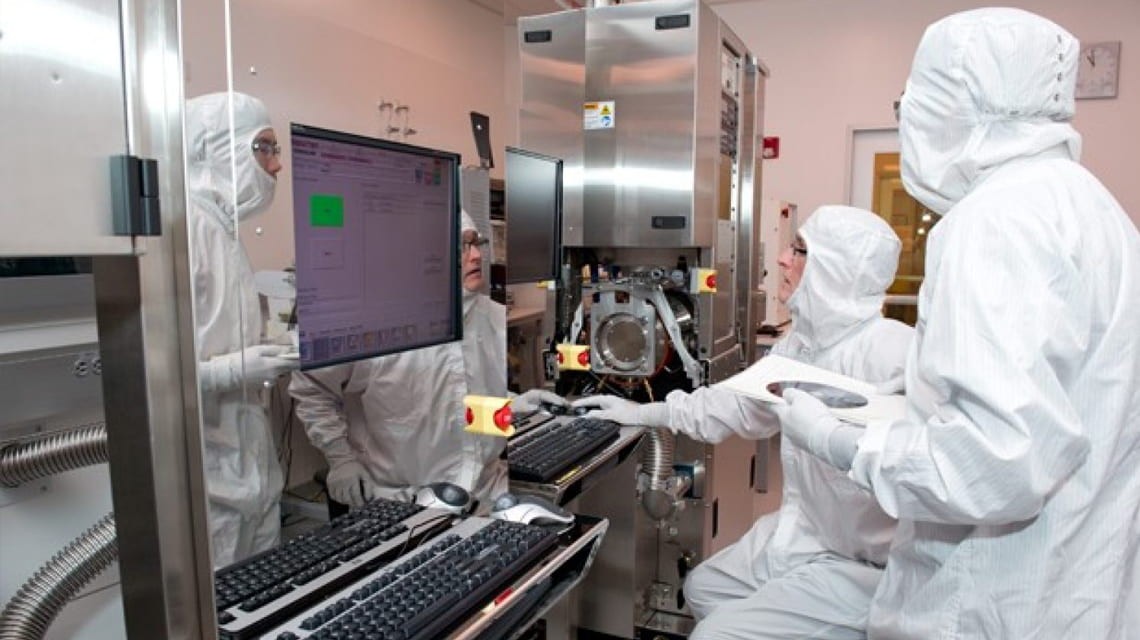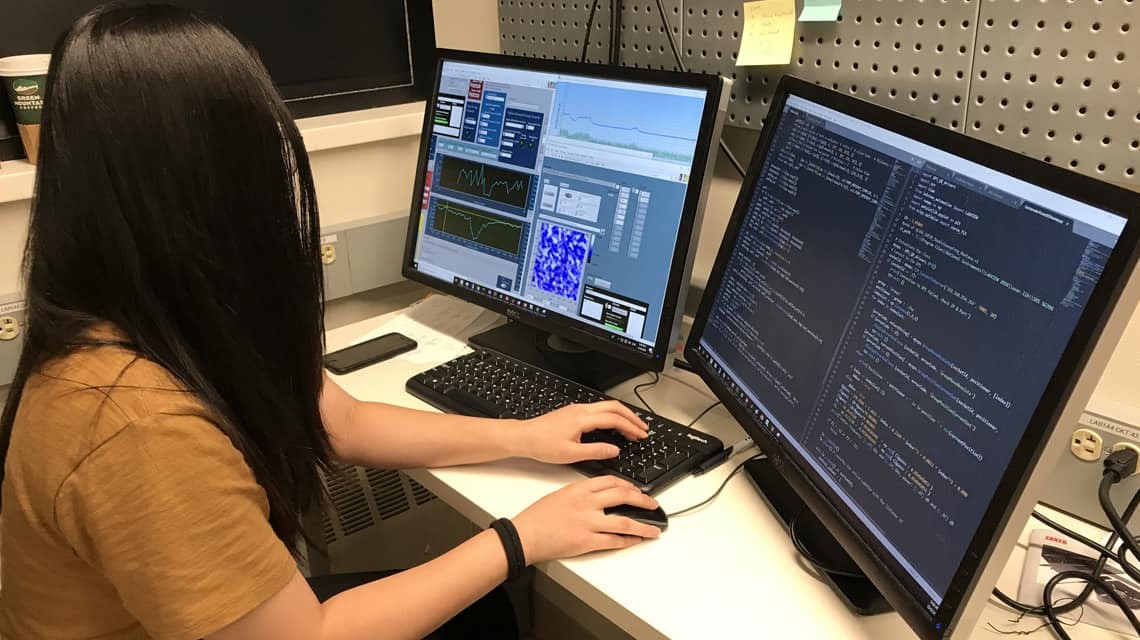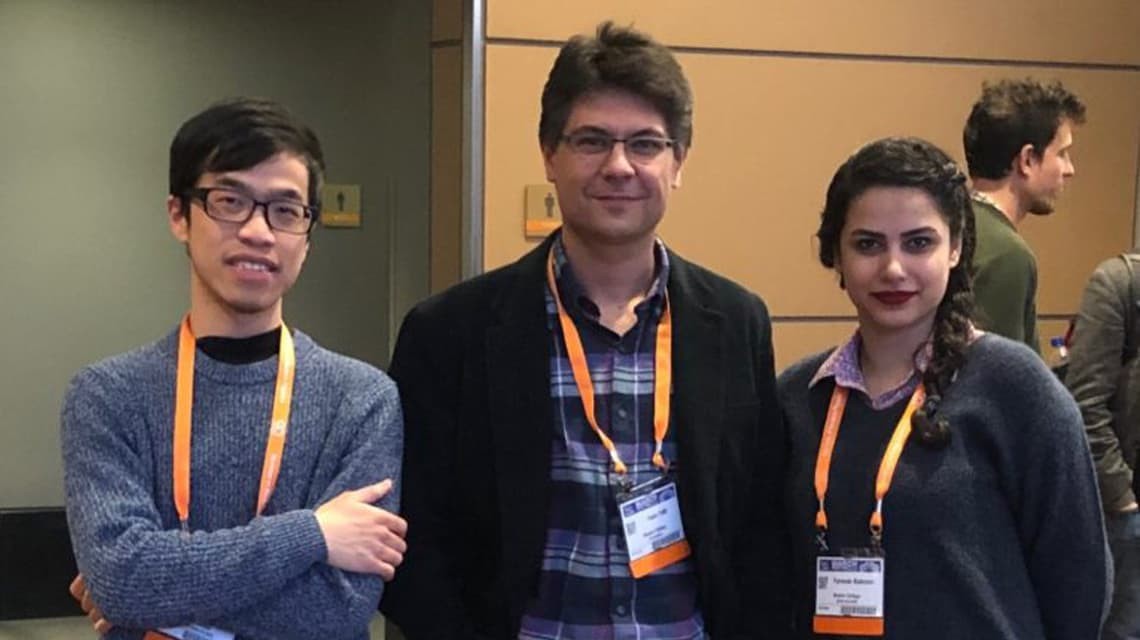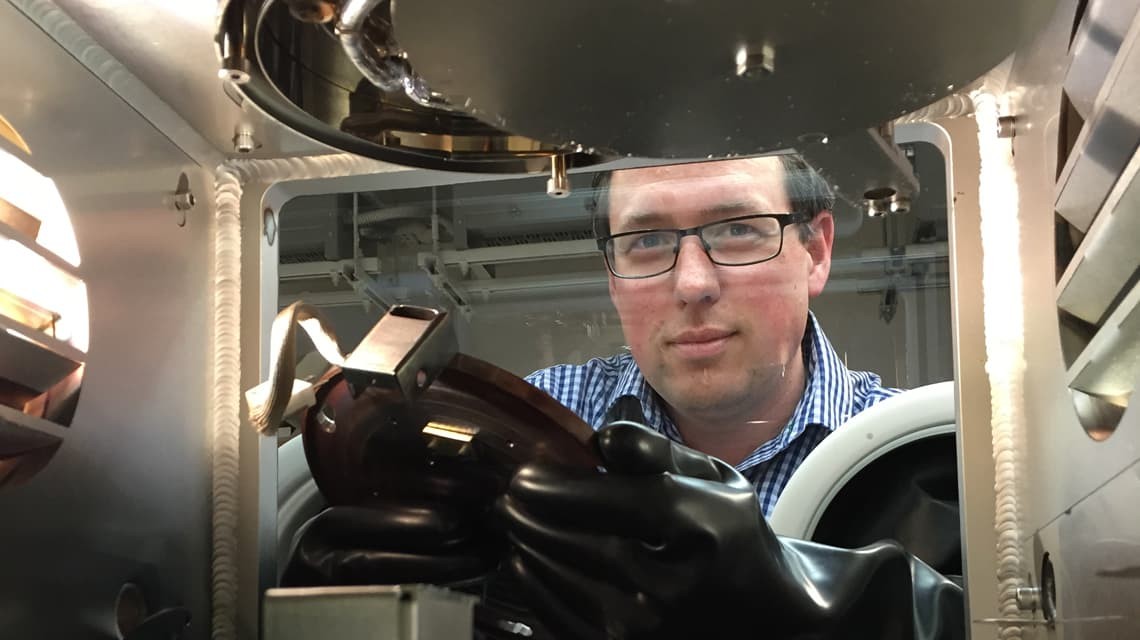Graduate Program
We are committed to fostering an exciting and vibrant research environment to train the next generation of leaders in quantum materials, quantum information, quantum sensing, biological physics, energy materials, photonics, and nanotechnology.
Welcome to the Physics Graduate Program at Boston College!
Our department is uniquely focused on Condensed Matter Physics—the largest, most rapidly growing field in physics, and one that is critically important to real-world technologies. We are committed to fostering an exciting and vibrant research environment to train the next generation of leaders in quantum materials, quantum information, quantum sensing, biological physics, energy materials, photonics, and nanotechnology.
Our mission is to prepare graduate students to thrive in today’s competitive job market. We accomplish this through access to state-of-the-art research laboratories and computational facilities, regular publication in high-impact journals, and rigorous training in analytical thinking, academic planning, and presentation skills. The department also offers access to cleanroom facilities, a machine shop, electronics shop, and materials characterization centers, enabling students to conduct cutting-edge research using advanced instrumentation and expert technical support.
A shared interest in the quantum world unites our faculty and creates a naturally collaborative environment. Students frequently co-author papers with faculty and present their work at major national and international conferences.
We invite you to explore our research to learn more about the dynamic and collaborative research culture in our department, and the course listing for both foundational and applied courses designed to prepare you for a future in quantum science and technology.
Choosing a graduate program is a pivotal decision. Please feel free to contact me or any member of our faculty with questions—we are happy to help.
By the Numbers
6
Fellows of the American Physical Society
6
New faculty hires since 2015
8
Average size of graduate courses
100%
Ph.D. candidates supported in research
Our Graduates
At the completion of graduate studies, the student should have developed the following:
- comprehensive knowledge of the basic fields of physics
- detailed knowledge of specific field(s) of physics
- ability to do research in a specific area of physics
- ability to communicate effectively about research and general topics in physics
- ability to teach and to explain concepts in physics to students and to others
- readiness to enter a career in physics research, teaching or related professions
The department will assess our students learning outcomes, and modify the program as appropriate, on a yearly basis in order to help students better achieve these goals.


